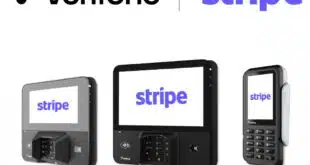Wal-Mart Stores Inc. confirmed Friday that it will settle its lawsuit against Visa Inc. over EMV debit card transaction routing. That news comes one day after the two leaders in their respective industries settled lawsuits they filed against each other stemming from the massive and still-ongoing credit card interchange litigation that dates back to 2005.
Bentonville, Ark.-based Wal-Mart sued Visa in May 2016 in a New York state court in Manhattan over the routing of transactions on the new Visa EMV chip cards. Wal-Mart accused Visa of trying to subvert its preference for routing EMV debit transactions on lower-cost PIN-debit networks and instead promoting signature transactions that would be routed over the Visa network. Visa denied the accusation.
 A Wal-Mart spokesperson would give no details of the pending settlement other than to say the companies are awaiting sign-off from the judge overseeing the case. “A stipulation for dismissal has been filed,” the spokesperson says.
A Wal-Mart spokesperson would give no details of the pending settlement other than to say the companies are awaiting sign-off from the judge overseeing the case. “A stipulation for dismissal has been filed,” the spokesperson says.
Meanwhile, papers the companies filed Thursday in U.S. District Court in Brooklyn, N.Y., seeking to have their respective cases in the credit card interchange litigation dismissed did not spell out terms of those settlements. “All we can say is the terms of the settlement are confidential,” the Wal-Mart spokesperson says.
“Visa is pleased to put these matters behind us and looks forward to continuing to work with Wal-Mart to serve our mutual customers,” a Visa spokesperson said in a statement emailed to Digital Transactions News.
The federal lawsuit Wal-Mart dropped was its so-called “opt-out” case. Wal-Mart, the world’s largest retailer, sued Visa in March 2014, accusing the payment card network of price fixing and other antitrust violations related to credit card interchange. As bank card networks, Visa and Mastercard Inc. set interchange rates, but the fee is paid by the merchant acquirer—and ultimately the acquirer’s merchant client—to the issuer of the bank card a customer used for a purchase.
Wal-Mart filed the opt-out suit after forgoing its share of $7.25 billion in damages merchants won in their July 2012 settlement of the class action known as MDL 1720, which pitted merchants against defendants Visa, Mastercard, and several big banks. MDL 1720 consolidated various suits against the networks in a number of different jurisdictions, the earliest of which was filed in 2005.
More than 7,000 merchants joined Wal-Mart in opting out of the settlement, saying it was inadequate. Instead, many chose to pursue individual actions against the networks. As of June 30, Visa had reached settlement agreements with individual merchants representing 34% of the Visa-branded payment card sales volume of merchants who opted out of the 2012 settlement, according to a Visa filing.
The suit Visa dropped was a June 2013 action it filed against Wal-Mart seeking court affirmation that its interchange practices were legal, thus making a lawsuit against the network pointless.
A federal appellate court in June 2016 invalidated the entire MDL 1720 settlement, and the U.S. Supreme Court in March declined to hear the networks’ appeal of that decision. Now the case is back in the Brooklyn district court before Judge Margo K. Brodie, where some observers have predicted it could take years more to resolve.
Visa and Wal-Mart had planned to settle the opt-out case in 2015, but the tentative deal was subject to termination if the MDL 1720 settlement was overturned.





